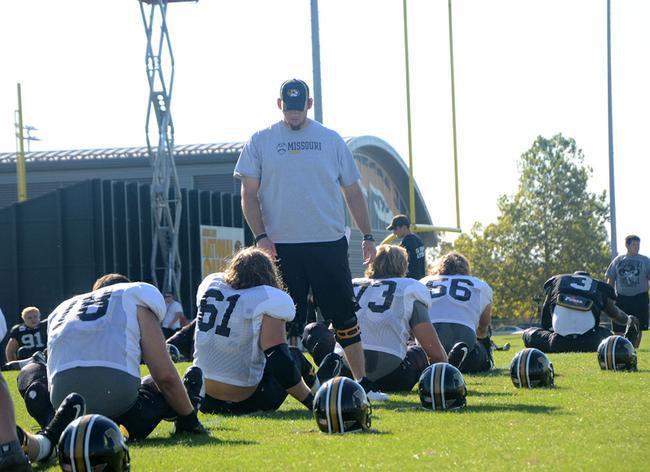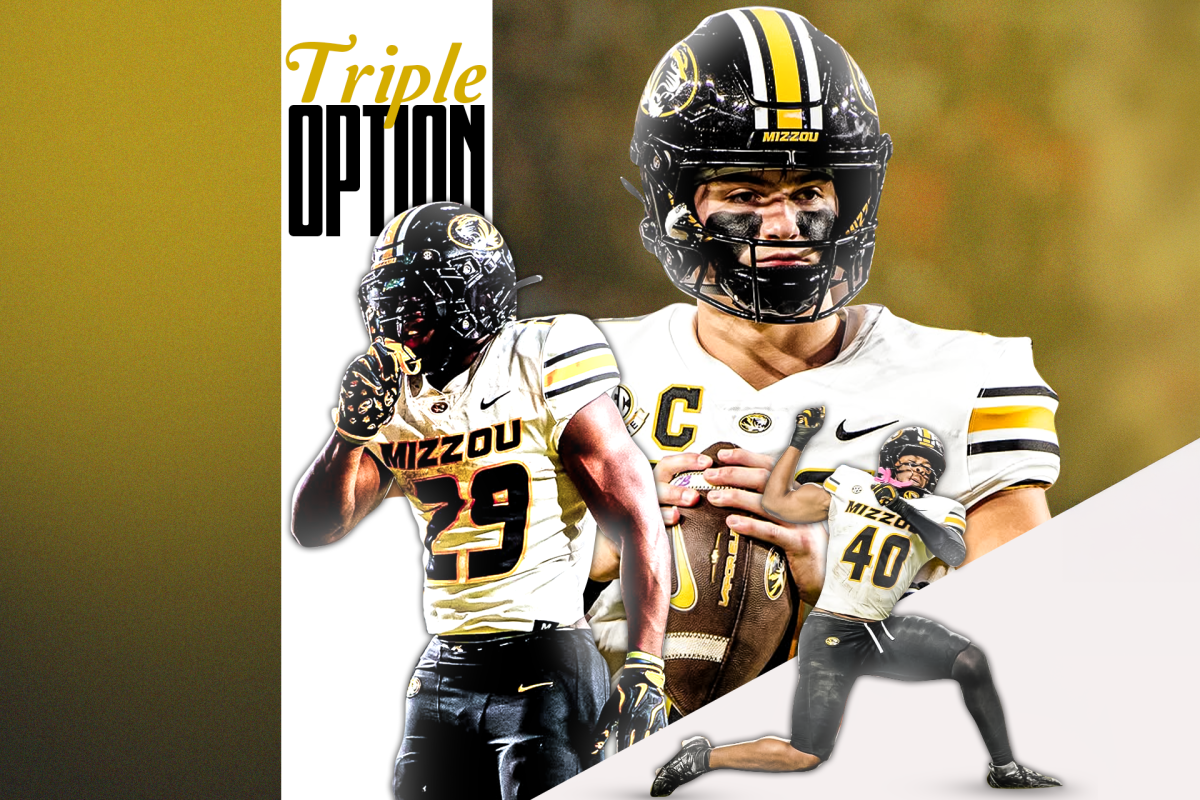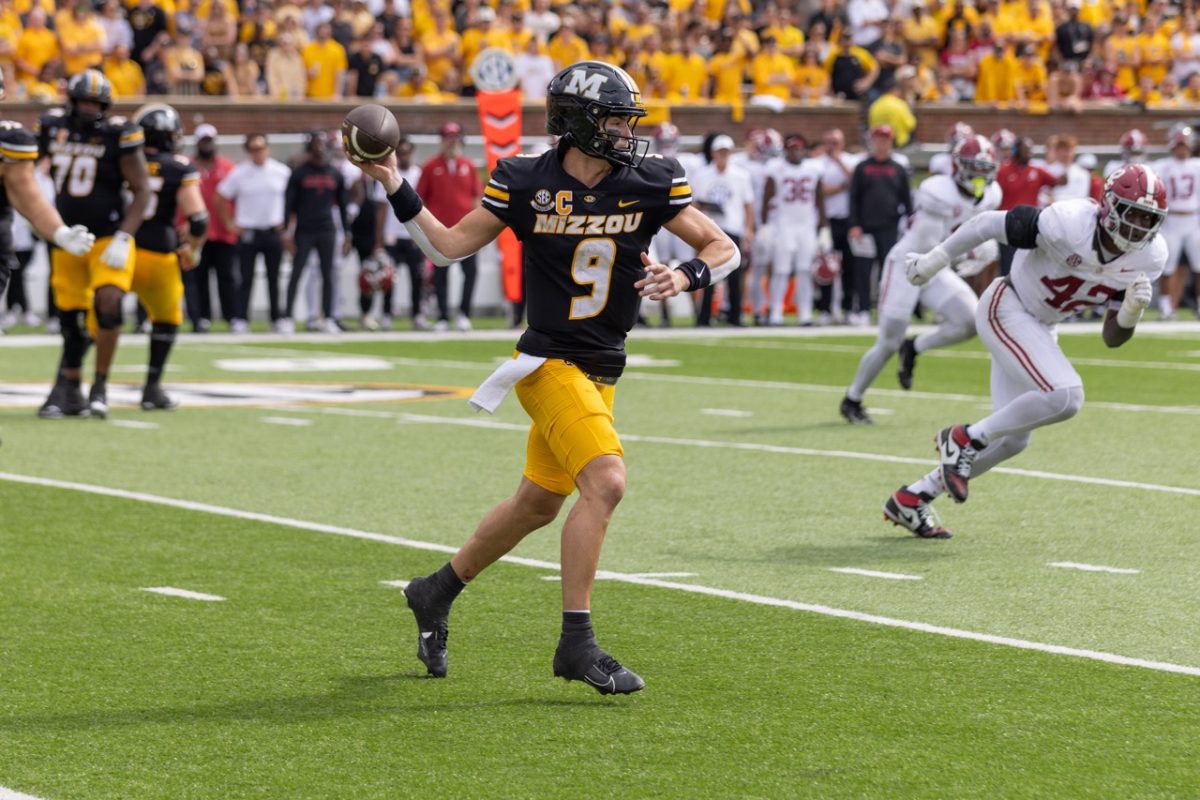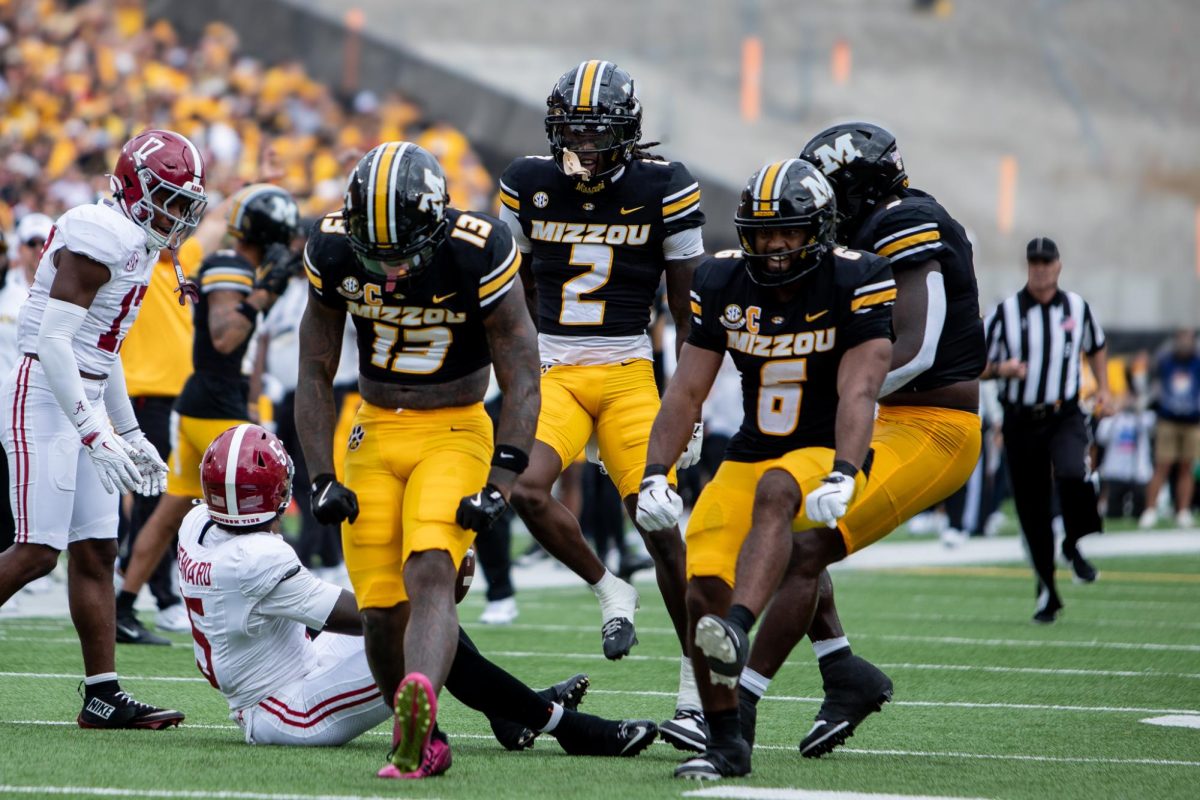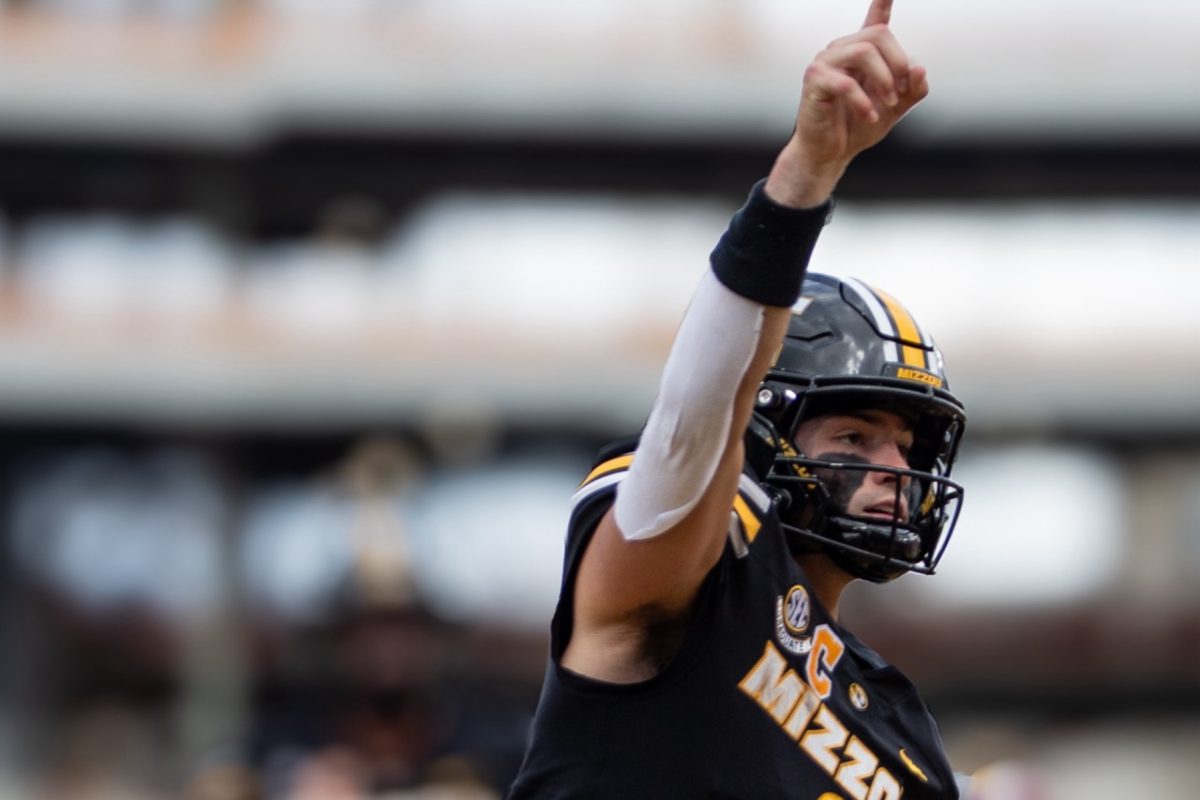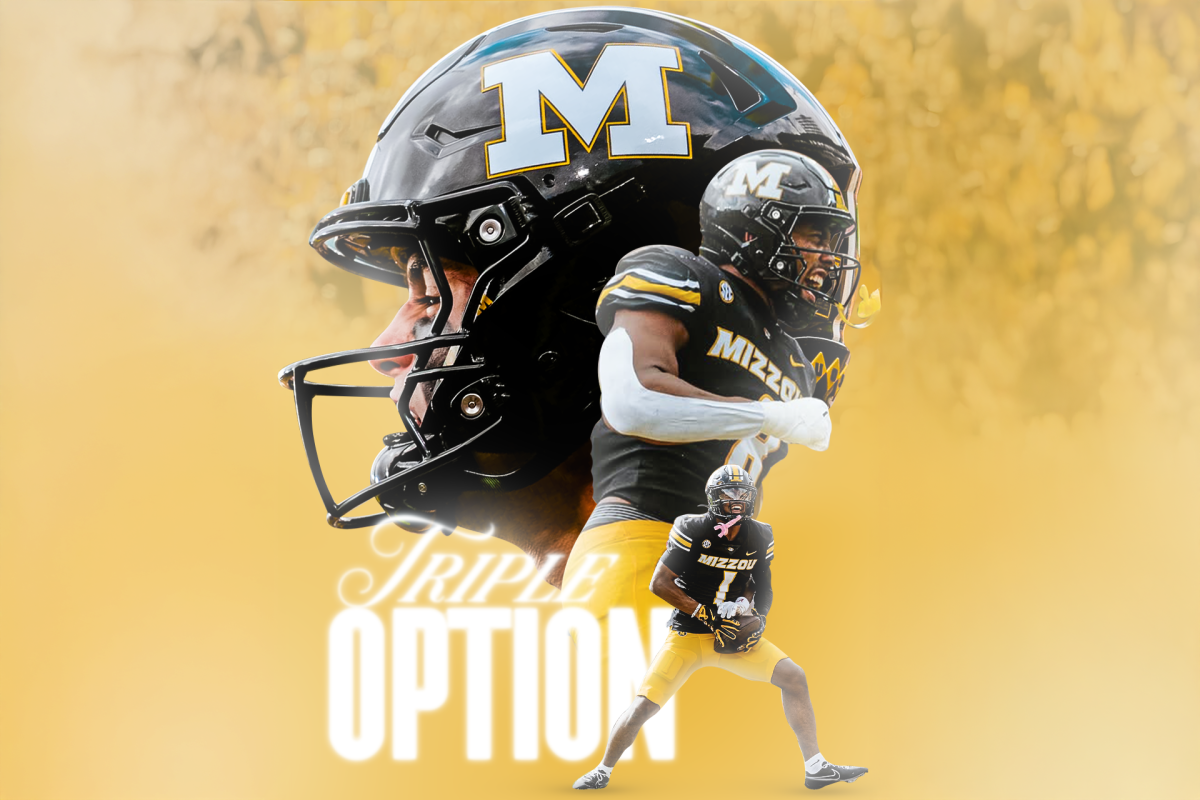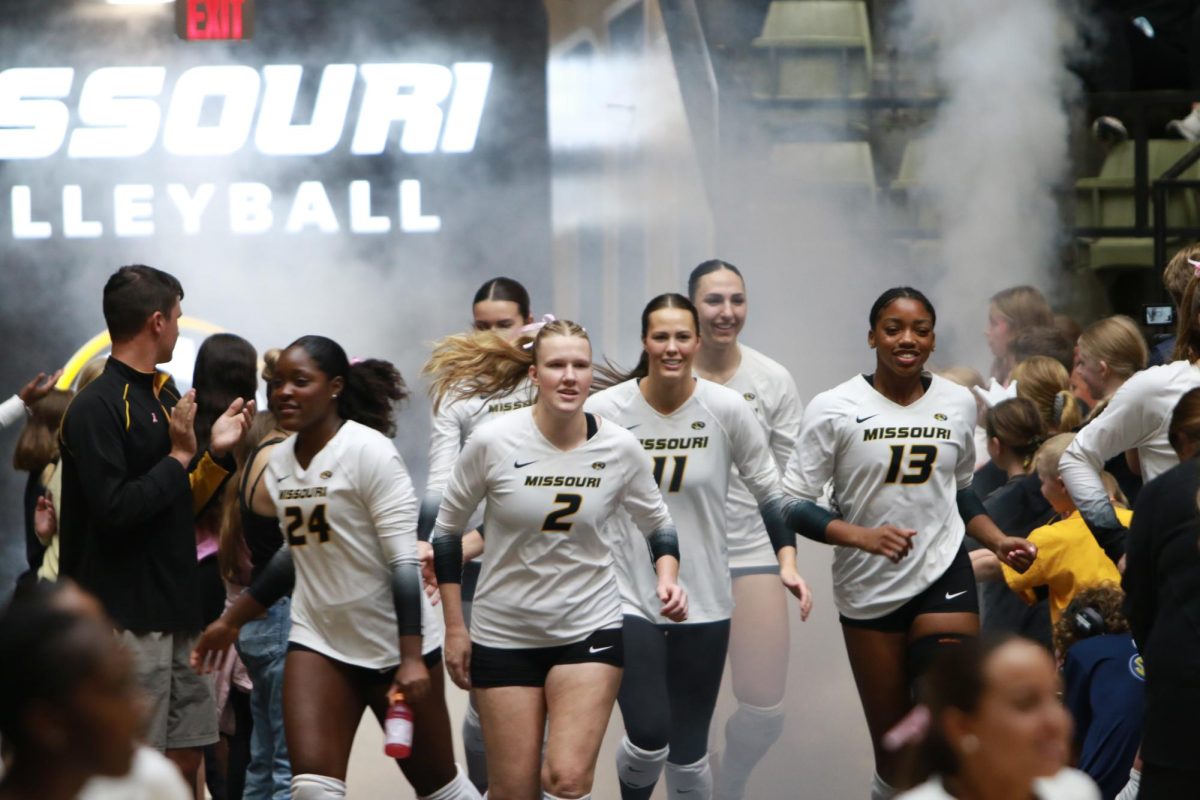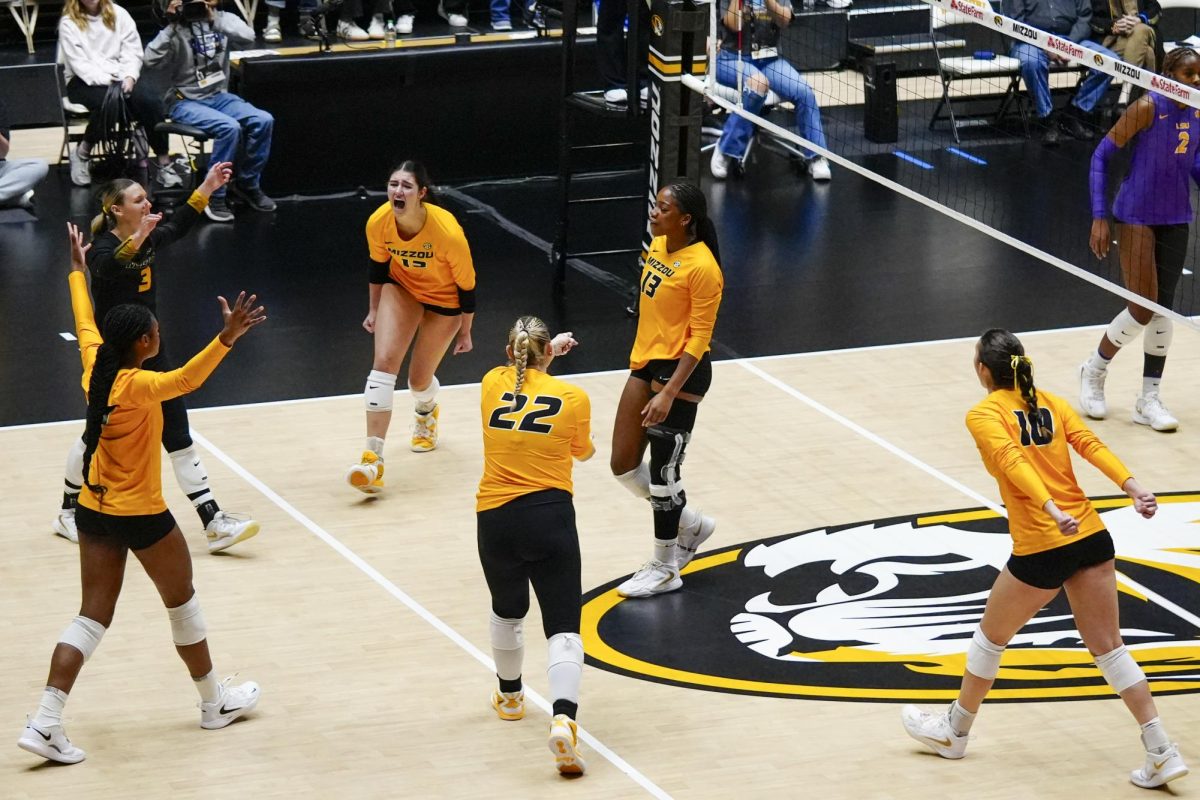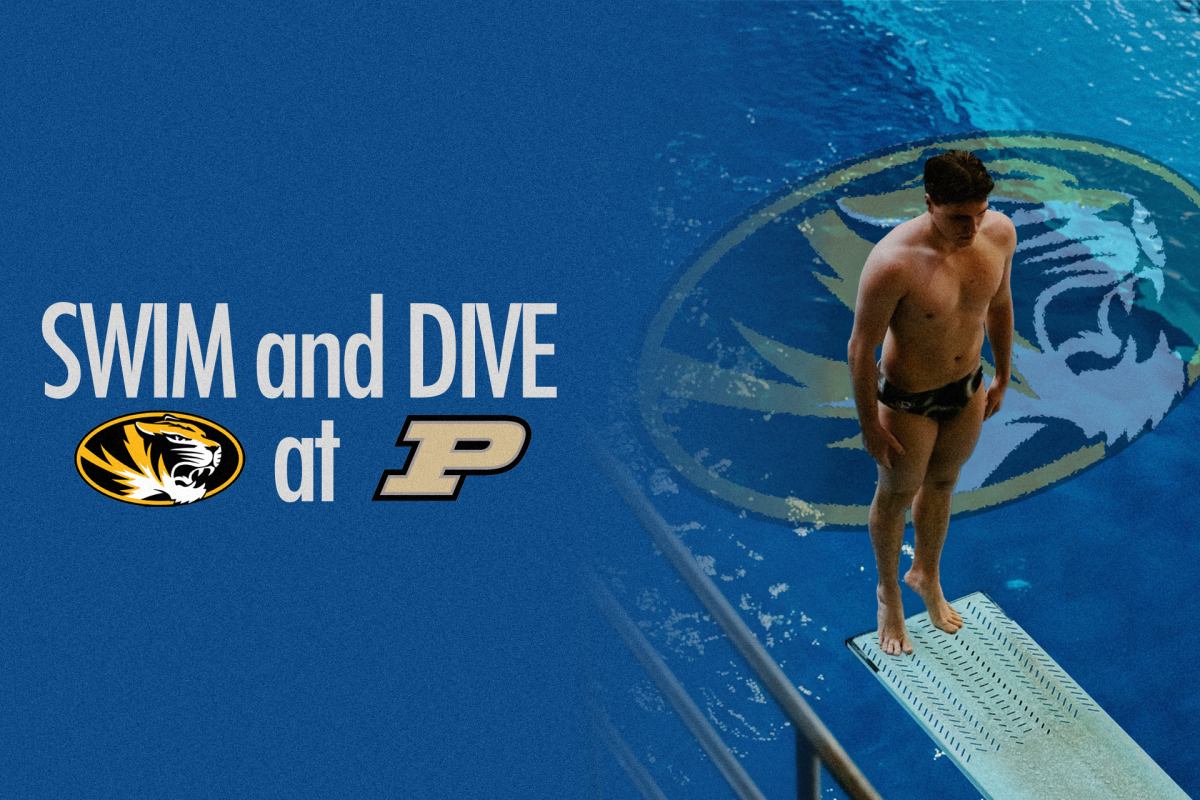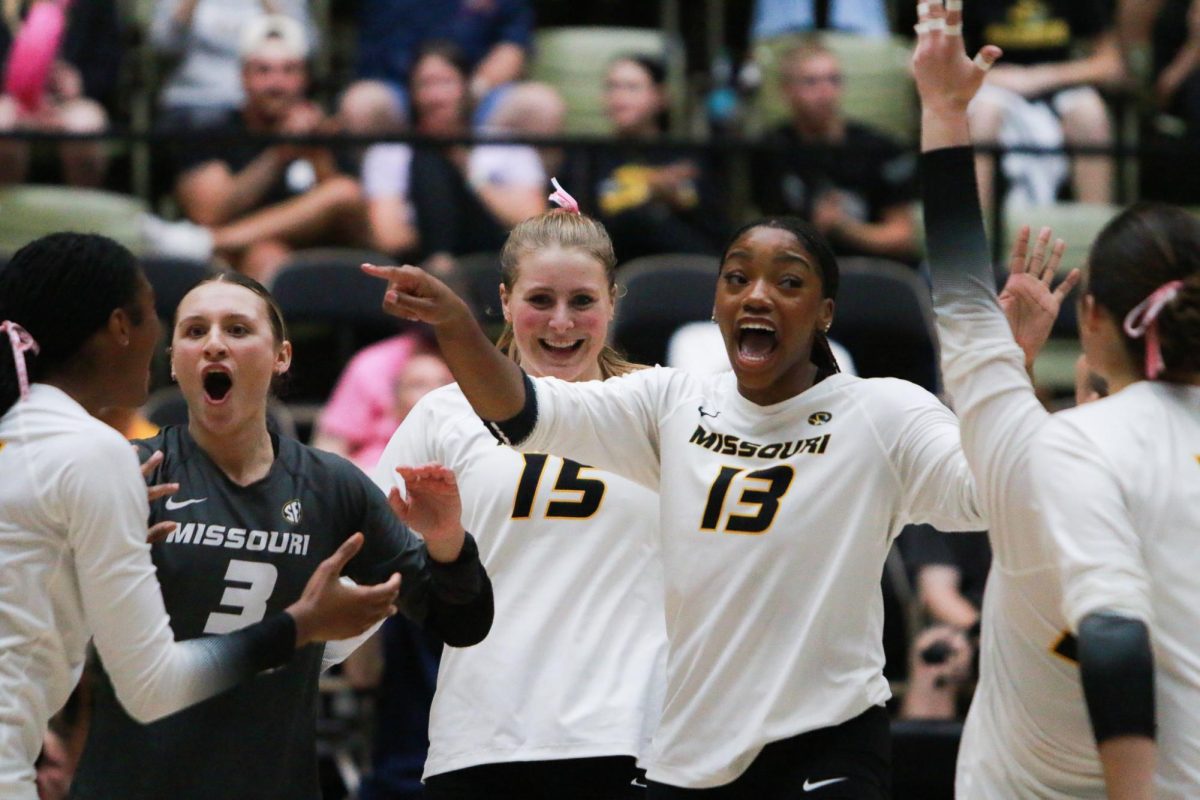At the sound of a whistle, a stampede of Missouri football players takes off down the field, around the goalpost and into lines for the daily stretch.
In the distance limps a straggler. Clad in street clothes, senior captain Elvis Fisher hobbles like a surly veteran, swinging his braced left knee and smiling as he meets his teammates following their run.
Fisher used to run this route to perfection. Those days are behind him. They snapped along with his knee days before the season started.
But in the moment’s walk through practice, all seems well. The All-Big 12 left tackle meanders calmly through the lines of players like a farmer appreciating his crops. He smiles, laughs and shares jokes with teammates bearing the pads he recently gave his own set of grass stains.
“I don’t really like to talk too serious about stuff,” he said. “I try to keep it up-beat. My injury has nothing to do with how they play on the field.”
**One play, one story**
There was a time when Fisher helped lead the same jog and stretched the same ligaments prior to running the same drills. He did so each week prior to 40 consecutive starts at offensive tackle from 2008 to 2010.
But on one play Aug. 15, the routine caught up with Missouri’s blindside protector.
“I was just doing a kick slide like I’ve done probably a million times since I’ve been here at the university,” he said. “I just took two or three kick slides. I went to brace up to try to stop the rush. I heard my knee pop, and I just went down.”
Fisher had heard the adages of how one play can change everything. He was aware of the risk of injury, the one part of the game that never fades away. Those lessons were all he could think of when the walls of his career came crashing down.
“A couple hours after it happened, I was on my way to get the MRIs and stuff like that,” he said. “I just thought, ‘What’s wrong with this?’ I just wanted to know that.”
The answer was that Fisher’s patellar tendon had ruptured. It was a unique injury that left him only one option: season-ending knee surgery.
“Our trainer, Casey (Hairston), looked at me and said, ‘It’s going to be a while,’” Fisher said. “Lots of emotions came out there.”
Like the state of the knee, those emotions weren’t appealing. Fisher quickly embraced the role of the forgotten athlete, bottling his story and lashing out at those who asked for it.
The reaction wasn’t what he wanted. But like the story, emotions were a subject Fisher would spend the coming weeks trying to figure out.
“I’ve been (at MU) forever it seems like,” he said. “I’ve been a starter here for three years. It’s kind of unfortunate because I had such high expectations for the team and for myself this season that I didn’t want this to happen.”
**A steady climb**
Fisher points to his braced knee, shame not having been an issue for weeks. He pulls his foot backward before extending it out, covering almost a complete range of motion.
The progress is staggering compared to attempts of weeks’ past, back when pool workouts and patella massages gave the immovable ligament the only stress it could handle.
Fisher’s current regimen involves much more intense exercises, spanning from quad stretches to lunges to leg presses. The goal, he said, is to build the muscle around the tendon so that the ligament itself can progress back to normal.
Fisher’s off-the-field recovery has operated much the same way. Soon after enduring a state of frustration, he realized that the path to being happy again lied in strengthening the relationships with those who wished to help.
It started when offensive coordinator David Yost and co-offensive line coach Josh Henson asked Fisher to adopt a coaching role with his fellow offensive linemen.
“(Fisher) could tell you what this guy, that guy, that guy was doing,” Henson said. “We had a real comfort level for Elvis to come out there and help us.”
For the first time in weeks, Fisher was happy to take a request.
“You kind of see things from a different perspective,” Fisher said of coaching. “You see the entire practice. You see the big picture.”
The opportunity lit a path for Fisher to reconnect with the teammates and friends that were forced to continue playing without him. Senior guards Jayson Palmgren and Austin Wuebbels and senior tackle Dan Hoch all started alongside Fisher for 12 games in 2010 and have joined him elsewhere for college activities like swimming and going to the movies.
Fisher’s place as their friend and fellow lineman was one role that never changed.
“It hurts to lose one of your really good players — a senior with a lot of experience and also a really good friend,” Hoch said. “It’s very unfortunate what happened, but he’s making the best of what he can, which is really good to see.”
The coaching role has also crafted a bond between Fisher and his left tackle replacement, sophomore Justin Britt. The two constantly dissect Britt’s individual plays, their conversation dominating the time between the snaps.
As the living representation of the game Fisher has left behind, Britt does his best to reflect that one-on-one assistance back to his mentor.
“God has a plan for (Fisher),” Britt said. “His plan is where he is now. I feel for him, and I thank him every day I see him.”
**A sense of place**
Coaching has become Fisher’s escape from a harsher reality. It’s his link to a game he still loves, one he hopes the NCAA will allow him to play as a redshirt senior for one final year in 2012.
“I don’t think it’ll be different, just a different group of guys,” Fisher said of the possibility, which will be determined after the conclusion of the season. “It’d just be getting used to that again.”
Coaching has reinforced Fisher’s role on the team. It’s a sense of place that never leaves any Missouri football player, according to coach Gary Pinkel.
Pinkel demonstrates the importance of roles with a description of the 36 scout team player of the week awards the coaches announce before a team-wide round of applause.
“The way we handle things around here is everyone is treated the same in this building, whether you’re a walk-on or whether you’re (quarterback) James Franklin,” Pinkel said.
Fisher’s obvious hope is to play again. But as he takes his daily stroll throughout practice, distant worries are not of the essence. Fisher instead embellishes the rare luxury of time.
Time is what practice has become for Elvis Fisher. It’s a time to watch, a time to coach and a time to walk — each day a little faster than the one before.


